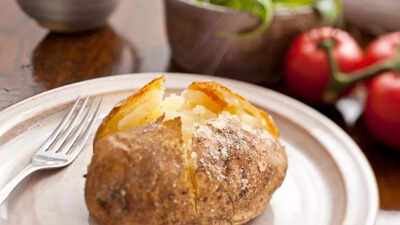6 Minutes Read | Listen to Article

Move aside kale, chia seeds have claimed the wellness crown. These little black pearls are no longer hiding in smoothies and overnight puddings, they are the darlings of influencers, nutritionists, and anyone who has ever uttered the words “gut health” with conviction. But beyond the hype, do they really deserve the superstar title? Dr Saurabh Sethi, a California gastroenterologist trained at Harvard and Stanford, has weighed in with science, not just Instagram sparkle.
Chia seeds come from the desert plant Salvia hispanica and pack quite the nutritional punch. Two tablespoons provide only 138 calories but are loaded with fiber, protein, magnesium, and those coveted omega 3 fatty acids. They keep you full longer, support digestion, and help reduce cholesterol. The doctor explains that when soaked, chia seeds absorb up to ten times their weight in water, making them excellent for hydration and a stealthy weapon against sugar spikes.
But before you start pouring half a packet into your water bottle, there are caveats. Eat them dry or in excess, and bloating may crash the party. The much whispered claims about fertility boosts and depression cures are also firmly in the myth category. Dr Sethi makes it clear that science has not given those benefits its stamp of approval.
On the bright side, chia seeds are gluten free, anti inflammatory, and a solid plant based protein source. They fit neatly into a weight loss plan when consumed properly, which means one or two tablespoons soaked in water for at least thirty minutes or preferably overnight.
Pair them with yogurt, smoothies, or even salads, and you have a nutrition boost that feels less like a diet chore and more like a lifestyle glow up. They may be tiny, but their benefits are mighty, and unlike some fads, they appear to be here to stay.
**This news was published on Times of India on 22nd August, 2025.
Source Click
 National Potato Day: Th...
National Potato Day: Th...
 Skin cancer symptom...
Skin cancer symptom...